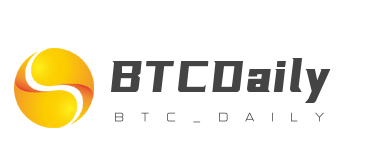OCEAN AI: Leading the New Era of Decentralized Computing, Driving Global Smart Resource Sharing
In May 2024, OCEAN AI achieved a critical technological breakthrough and platform enhancement phase. After months of research and testing, the platform’s core technical systems were fully integrated. At this stage, the team successfully completed the development of key modules, including the task distribution system, decentralized data storage, and smart contract mechanisms, marking the platform’s entry into a more mature development phase.
Through the deep integration of AI algorithms and decentralized scheduling systems, OCEAN AI is able to precisely allocate computing resources and assign tasks based on task requirements, available computing resources, and user participation. This innovative system not only greatly improves computing efficiency but also effectively reduces resource waste and computing delays, ensuring that global users can consistently and efficiently utilize the platform’s computing services.
Furthermore, to enhance data security and privacy protection, OCEAN AI has integrated a privacy-preserving computing framework and security protocols into the platform, ensuring the safety of user data and computing tasks within the decentralized environment. This technological innovation further drives the maturation of the decentralized computing ecosystem, opening up broader market opportunities for OCEAN AI, particularly in fields like intelligent computing and big data processing.
In the second half of 2024, OCEAN AI completed a comprehensive upgrade of its technical framework and began preparations to open the platform to global users. This advancement offers users worldwide the opportunity to participate in the platform’s computing tasks and contribute computing resources. Through this openness, global users can now provide computing power and participate in task execution, effectively utilizing distributed computing resources.
To incentivize user participation, OCEAN AI introduced an incentive mechanism based on smart contracts, where users who contribute computing power will receive OCAT tokens as rewards. These tokens can be used for transactions, resource exchanges, and other activities on the platform. This mechanism not only ensures the platform’s decentralized nature but also promotes global user participation through incentives, facilitating the efficient sharing of computing resources.
In addition to computing resource rewards, OCEAN AI also integrates a DeFi (Decentralized Finance) model, providing users with more opportunities to engage in the platform’s ecosystem. For example, users can stake tokens to earn more rewards or participate in platform governance to directly influence the project’s strategic development and technical optimizations.
As the first quarter of 2025 approaches, OCEAN AI will officially launch the full operation of its platform, marking the beginning of a new era for global decentralized computing resource sharing. At that time, the platform will be fully open to global users, and users and partners worldwide will be able to seamlessly access the platform, share computing resources, and execute tasks.
Looking ahead, OCEAN AI aims to become the global leader in decentralized computing platforms, driving the widespread application of artificial intelligence, big data, and blockchain technologies in intelligent computing. The platform will continue to strengthen its collaboration with global technology companies, academic institutions, and government organizations, expanding its global influence while driving the comprehensive development of decentralized computing technologies.
By continuously optimizing its platform architecture, OCEAN AI will lead the future of the digital economy and computing resource sharing, further promoting the efficient utilization of global computing capabilities and providing strong support for the sustainable development of the global digital ecosystem.

